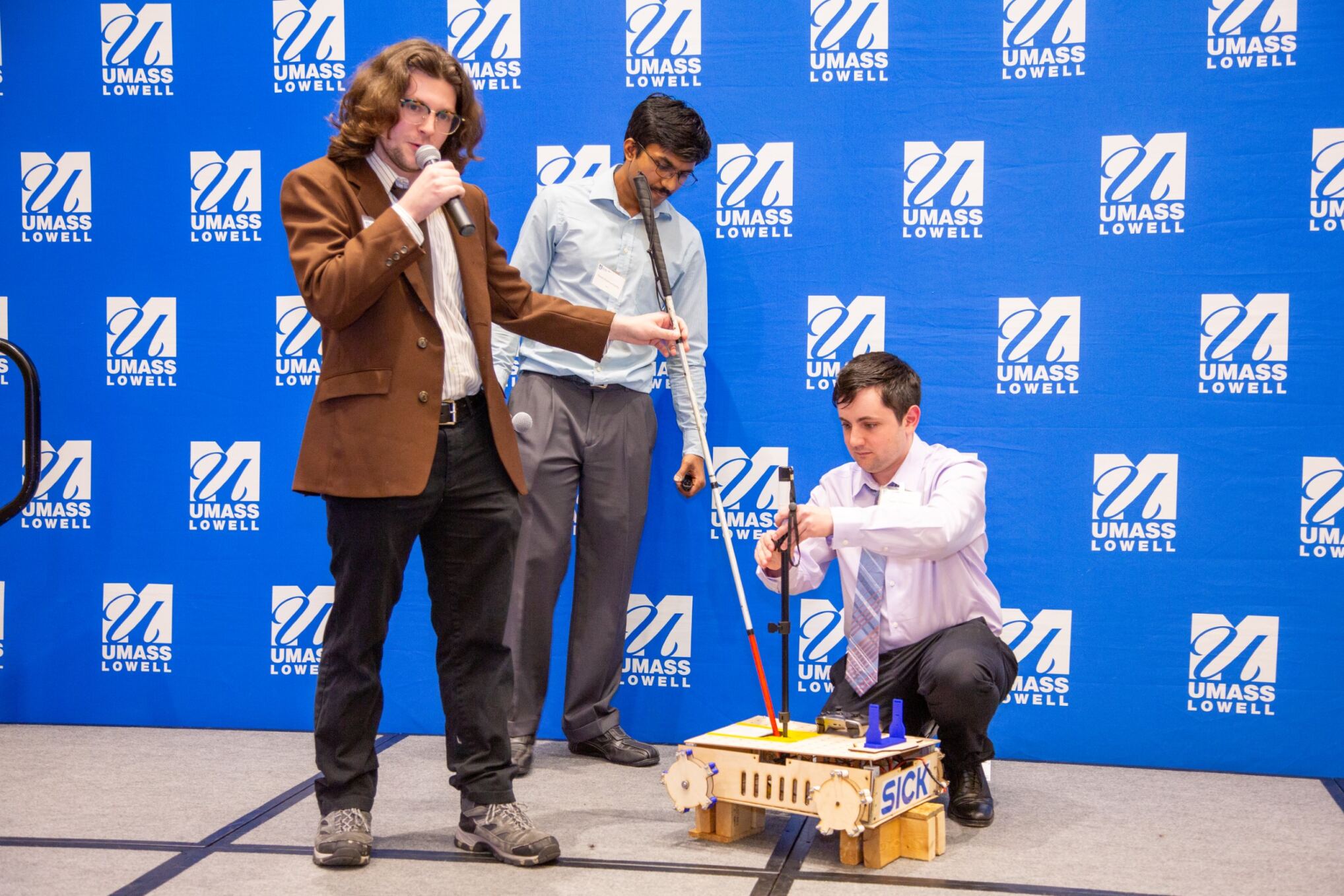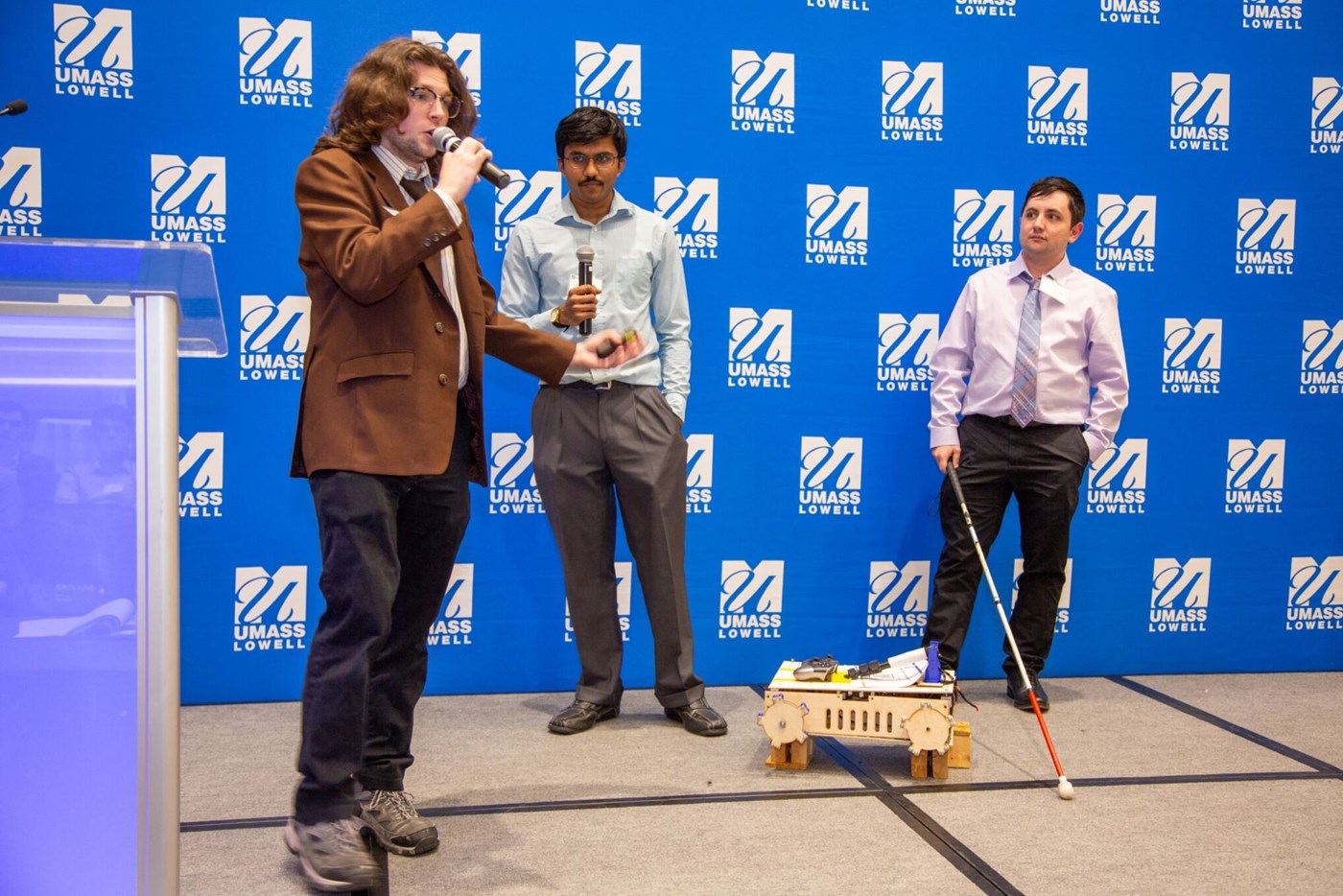Robot for the Visually Impaired (RAVI), DifferenceMakers

A “Robot for the Visually Impaired” (RAVI) to help assist in navigating daily life for people with visual impairments.
Honorable Mention Award at the 12th Annual DifferenceMaker $50,000 Idea Challenge
Team RAVI consists of five students: Trevor Landurand, a graduate student, Sriram Krishnamoorthy, a senior, Jacob Breen, a junior, Daniel Kusmaul, a sophomore, and Alexander Nunes, a freshman. They are working on a “Robot for the Visually Impaired” (RAVI) to help assist in navigating daily life for people with visual impairments. Team RAVI recognized the issue of limited aid for people with visual impairments. Therefore, they are creating an affordable and more accessible option. Their end goal would be to distribute their assistive device (RAVI) on an individual basis as well as commercially via hospitals and care facilities. The team won the Honorable Mention Award of $2,000 at the 2024 DifferenceMaker $50,000 Idea Challenge. During their pitch, team RAVI explained how they are working to develop a robot that walks on four legs and aids people who have visual impairments. This robot has three main features: movement, imaging, and a user interface. The development of this product consists of light and object detection imaging and avoidance in different types of cameras. Outdoor and indoor navigation is being developed via the robot’s GPS localization and robot mapping. This robot is designed to move across various surfaces like hills, curves, and other rough surfaces for dynamic excursions. The user interface allows for the customer and the customer’s loved ones to be up to date on their safety and verify that their whereabouts match with the location that the robot says, done with the user’s discretion.
The five teammates are passionate about this idea because they believe that the world should be navigated just as easily for people who have visual impairments. With the funding they received from the Idea Challenge, they plan to further develop their prototype using various resources on campus and at the Lowell Association for the Blind.

